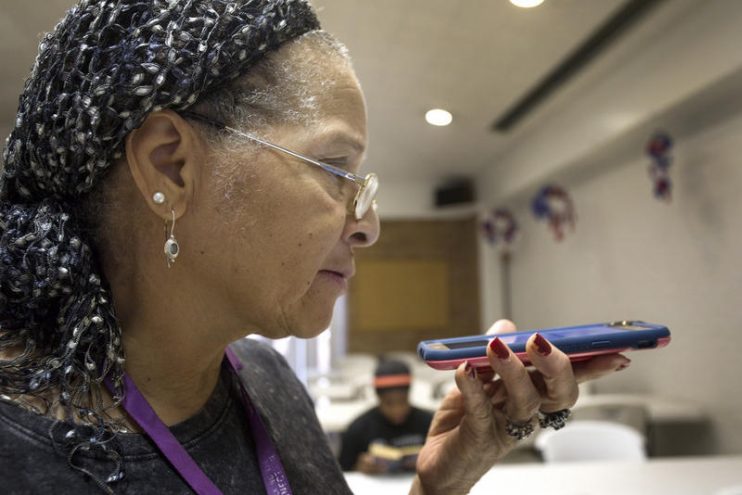[cs_content][cs_section parallax=”false” style=”margin: 0px;padding: 45px 0px;”][cs_row inner_container=”true” marginless_columns=”false” style=”margin: 0px auto;padding: 0px;”][cs_column fade=”false” fade_animation=”in” fade_animation_offset=”45px” fade_duration=”750″ type=”1/1″ style=”padding: 0px;”][x_author title=”Publisher: KUT Austin’s NPR Station” author_id=”Publisher: KUT Austin’s NPR Station”][cs_text]
Jan Morgan used to think smartphones were for young people.
“I didn’t want a phone smarter than me,” she joked.
She refused to get one. Instead the 66-year-old bought flip phones and pre-paid phone cards. Thirty-three phones later, a store clerk pointed out that she didn’t have to buy a new phone to get more minutes.
That was around the time she signed up for a computer class at her Lakeside apartment building. The classes are offered by the Austin Housing Authority as part of the city’s Digital Inclusion program. Soon, Morgan became a digital ambassador and started teaching other residents in her building.
“I learned that everything you can do on a computer, you can do on a phone, too,” she said.[/cs_text][x_button size=”global” block=”true” circle=”false” icon_only=”false” href=”https://www.kut.org/post/digital-inclusion-program-helps-older-and-low-income-austinites-catch-technology” title=”” target=”blank” info=”none” info_place=”top” info_trigger=”hover” info_content=””]Read More[/x_button][/cs_column][/cs_row][/cs_section][/cs_content]
